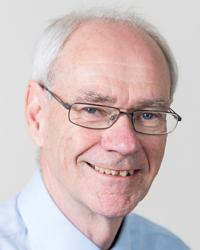
SPEAKER PROFILE
Prof. Philip Marsh
UNITED KINGDOM
Philip Marsh is Professor of Oral Microbiology at the School of Dentistry, University of Leeds, UK. He has published over 250 research papers and review articles, and is co-author of a leading text book on oral microbiology.
He was the recipient of the ORCA-Rolex Award for Caries Research in 1991, the IADR Distinguished Science Award (Research in Dental Caries) in 1998, the Society for General Microbiology (UK) Colworth Prize Award in 2001, and a Lifetime Achievement Award in 2008 from the World Congress of Minimally Invasive Dentistry.
His research interests include dental biofilms and oral microbial ecology, which has led him to propose the ‘ecological plaque hypothesis’ to explain whether the relationship between the oral microbiota and the host will result in health (symbiosis) or disease (dysbiosis). He is interested in how oral care products can prevent disease while preserving the important beneficial functions of the resident oral microbiota.
Professional Biography
Philip Marsh is Professor of Oral Microbiology at the School of Dentistry, University of Leeds, UK. He has published over 250 research papers and review articles, and is co-author of a leading text book on oral microbiology.
He was the recipient of the ORCA-Rolex Award for Caries Research in 1991, the IADR Distinguished Science Award (Research in Dental Caries) in 1998, the Society for General Microbiology (UK) Colworth Prize Award in 2001, and a Lifetime Achievement Award in 2008 from the World Congress of Minimally Invasive Dentistry.
His research interests include dental biofilms and oral microbial ecology, which has led him to propose the ‘ecological plaque hypothesis’ to explain whether the relationship between the oral microbiota and the host will result in health (symbiosis) or disease (dysbiosis). He is interested in how oral care products can prevent disease while preserving the important beneficial functions of the resident oral microbiota.






Dental Events In commencing Tuesday, 18 March, 2025